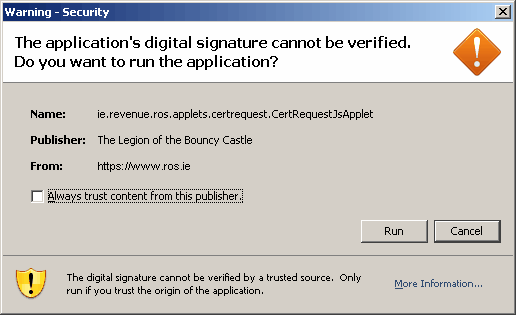18/11/2009
“This configuration, NT4.0 / IIS and SQL Server  is fast becoming an industry standard for mid range ecommerce applications – as the skills for development are ‘relatively’ available and affordable.”
*koff* Open Source *koff*.
Ok ok, I shouldn’t go on about it, but I have to – I’m a Linux user and PHP programmer, that’s my job. And I don’t particularly want to get into a “mine is better than yours” style flaming match either, but I do have to state the case for Open Source. For instance, I agree that ASP is being used for a hefty chunk of eCommerce applications, but I think that if anything is “fast becoming the industry standard”, it’s the Linux/Apache/PHP/MySQL combination.
According to Netcraft, Apache now runs on just over 60% of websites, with IIS the next in line at a measly 20% – just *one third* of the Apache coverage. I think those figures speak for themselves, but there’s more – Apache’s coverage consistently goes up, month by month, by at least 1% (last month it was just short of 2%), whereas nearly every other webserver goes down. And this is no Open Source biased survey (said he nodding in the direction of some of the figures on microsoft.com), it’s performed completely automatically on over 13 million sites by simply sending a HTTP request for the server name.
As to the financial aspect, which of course is of prime importance on a list like this – with Open Source solutions you’re already saving a fortune because you’re not paying for your operating system, webserver, programming language or database server. Yes, you can buy the “proper” CD of RedHat Linux, but you can also get a copy from any of the Linux User Groups (LUGs), for just the cost of the CD. In most cases, they’ll post it out to you for nothing as long as you send it back afterwards.
And of course, because of the Open Source licences, that’s completely legal. Matter of fact, if you want to burn it to CD yourself and start selling it on the lovely new website you developed on your Linux machine, you can. That’s the spirit of Open Source. And on that CD there will most likely be copies of Apache, PHP and MySQL, as well as hundreds of other tools. Think they’re a bit old? Go to their websites and download a newer copy — it’s free.
As to the skills for development. I have to give a few points away here, because I realise that some people prefer to learn “properly” – academically that is, in a course or certification program. But for those who don’t, there are plenty of options. Personally, I prefer to “learn by doing” – by creating applications, I learn how to improve them and how to create other apps. There are many, many books out there about Linux, PHP, SQL and even Apache. But most importantly there are thousands, even hundreds of thousands of developers out there willing to give you a hand, on mailing lists and web forums, who in some cases will go completely out of their way to help you. Again, that’s the spirit of Open Source.
And finally, ease-of-use is important. And here again I have to give a few points away – Linux is hard. There’s no doubting that – it’s hard to setup, hard to configure and hard to manage. But the reason for that is because it’s more configurable. Don’t like the way one of your system binaries works? Hack the source code and recompile. Think you can tweak a few more bytes out of that modem – ask around, someone will know. But even with that said, Linux becomes easier to use and configure as time goes on. Installation is easier now, and there’s more and more people every single day to help you if you get stuck.
The same goes for everything else – Open Source means that if you don’t like what something does, you can open up the source code and change it.
My apologies for going on about this, but it’s *important*. Businesses – and businessmen – have to start realising that there are alternatives to Microsoft and others, that there are easier and cheaper ways of doing it. Yes, in the short-term it’s easier to employ a programmer to do it for you, but you can do that with Open Source equivalents too, and you have the added advantage of having the option of learning the skills necessary yourself, and *doing* it yourself — thereby cutting an overpriced developer out of the loop. Maybe I’m cutting my own throat by saying that, but all to the greater good.
And finally, a practical example, and the one I know best – my own company. ieWebs is a small web agency, slowly building a reputation for ourselves. It consists of myself, our designer Gary Edmunds and a few other people who help out, my mammy included. When I started on the web, I was thrown in at the deep end – I knew nothing about Unix or webservers, and I certainly wouldn’t have been able to program a functional shopping application. But because the cost of bandwidth, and so hosting, was so high in Ireland, I was forced to serve my sites from a Unix variant server in the States. Which meant learning how to configure and administer a server from the command line, which could be equated with working on your local machine in DOS all the time.
But I persisted and taught myself Perl, one of the first, and probably still one of the best web programming languages available. And then I moved to PHP, a newer language that can be embedded directly into webpages. And all the while I was tinkering away with the machine I was on, learning how to configure it for better performance, how to secure it from crackers better, etc.
